Agnes Varda was a pioneering French filmmaker and one of the most influential voices in the history of cinema.
Her films were marked by a unique style and a deep commitment to social justice, making her a key figure in the French New Wave movement of the 1960s and beyond.
Best Agnes Varda Films
Here are some of Agnes Varda’s most noteworthy films that are worth watching:
1. Cléo from 5 to 7 (1962)
“Cléo from 5 to 7” is a French New Wave film directed by Agnès Varda that was released in 1962.
The movie follows a young and famous singer named Cléo who is anxiously awaiting the results of a medical test that will determine if she has cancer.
The film takes place in real time over the course of two hours, from 5 pm to 7 pm, as Cléo wanders around Paris contemplating her life and mortality.
As she interacts with various characters, including a fortune-teller, a soldier, and a street musician, Cléo begins to gain a new perspective on her life and the world around her.
Through their conversations, Cléo begins to question her life choices and the way she has been living, ultimately coming to a realization about the meaning of life.
- Amazon Prime Video (Video on Demand)
- Corinne Marchand, Antoine Bourseiller, Dorothee Blanck (Actors)
- Agnès Varda (Director) - Agnès Varda (Writer) - Georges De Beauregard (Producer)
- (Playback Language)
2. Vagabond (1985)
“Vagabond” is a French film directed by Agnès Varda and released in 1985.
The film tells the story of Mona, a young and homeless woman who wanders through the French countryside in the winter.
The narrative is framed by interviews with various people who encountered Mona during her final weeks of life, as they offer their own interpretations of who she was and what led to her death.
- Sandrine Bonnaire, Macha Mril, Stphane Freiss (Actors)
- Agns Varda (Director) - Agns Varda (Writer)
- English (Subtitle)
- Audience Rating: R (Restricted)
3. The Gleaners & I (2000)
“The Gleaners & I” is a French documentary film directed by Agnès Varda, released in 2000. The film is a meditation on the concept of gleaning, which is the act of collecting leftover crops from farmers’ fields after the harvest.
Through interviews and observation, Varda explores the history of gleaning, as well as the people who still practice it in contemporary France.
The film depicts not only the practical aspect of gleaning but also its cultural and artistic significance, as Varda meets various people who use gleaned materials in their art and daily lives.
https://www.youtube.com/watch?v=z0Nv9dTcZKw
“The Gleaners & I” is also a personal documentary, as Varda reflects on her own life and experiences while exploring the lives of others.
She uses the film as a means to explore her own aging process and the way in which she, like a gleaner, collects fragments of life and memories.
If you like Agnes Varda’s work, on our sister site AuteurGraph we have a profile page, a visual film timeline, and a ratings page that gives a tonne of info and data about their career in a visualized form.
- Amazon Prime Video (Video on Demand)
- Jean La Planche, Bodan Litnanski, Agnès Varda (Actors)
- Agnès Varda (Director) - Agnès Varda (Writer)
- (Playback Language)
- Audience Rating: NR (Not Rated)
4. La Pointe Courte (1955)
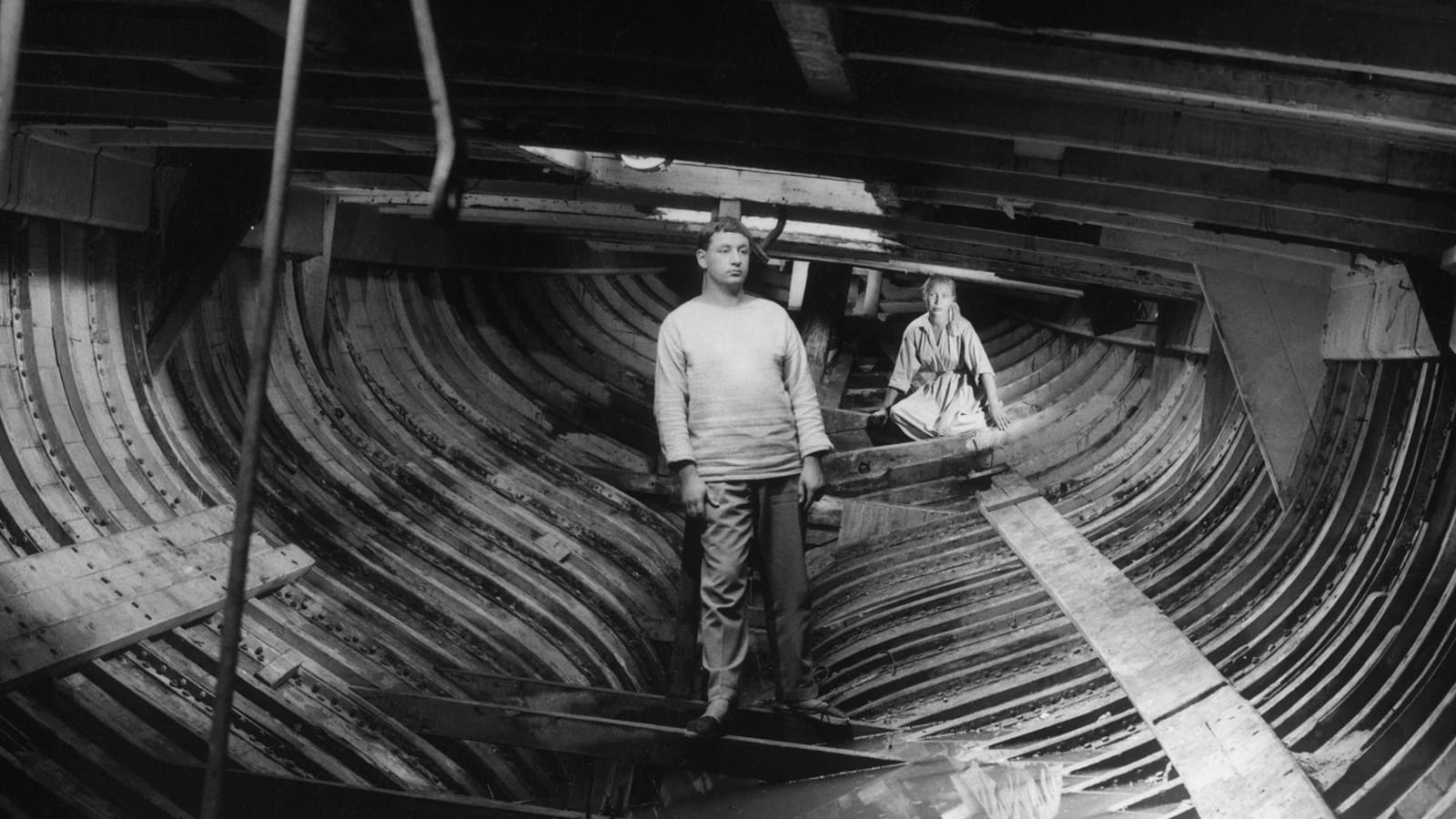
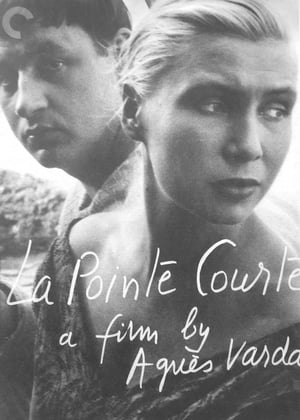
La Pointe Courte
1956 • 1h 20min • ★ 6.902/10 • France
Directed by: Agnès Varda
Cast: Philippe Noiret, Silvia Monfort, Marcel Jouet, Albert Lubrano, Anna Banegas
A penetrating study of a marriage on the rocks, set against the backdrop of a small Mediterranean fishing village. Both a stylized depiction of the complicated relationship between a married couple and a documentary-like look at the daily struggles of the inhabitants of Sète in the South of France.
“La Pointe Courte” is a French film directed by Agnès Varda, released in 1955. It is Varda’s debut feature film and is considered a precursor to the French New Wave.
The film is set in a small fishing village in the south of France and tells two parallel stories: one about a young couple on the verge of a break-up and the other about the daily lives of the villagers.
The couple’s story is told through dialogue and close-ups, while the villagers’ lives are depicted through observational, documentary-style footage.
“La Pointe Courte” is known for its innovative and experimental style, combining elements of fiction and documentary.
The film features non-professional actors and naturalistic lighting, and Varda frequently uses long takes to immerse the audience in the village’s daily life.
The film’s depiction of the relationship between the couple is also notable for its psychological complexity, exploring the nuances of love, doubt, and the challenges of communication.
“La Pointe Courte” was not initially well-received upon its release but has since been recognized as a significant work in the history of French cinema, as it anticipates the formal and thematic concerns of the French New Wave.
- Agnes Varda (Director)
- English (Subtitle)
- English (Publication Language)
- Audience Rating: NR (Not Rated)
5. Le Bonheur (1965)
“Le Bonheur” is a French film directed by Agnès Varda, released in 1965. The film explores the idea of happiness and the consequences of pursuing it at all costs.
The story centers on François, a young and happily married carpenter who falls in love with a postal worker named Émilie.
Despite his love for his wife and children, François decides to pursue a relationship with Émilie, believing that he can have both her and his family and still be happy.
The film is notable for its vivid use of color and its dreamlike, poetic style, as well as its exploration of the complexity of human relationships.
The characters’ emotions and desires are often conveyed through visual imagery and symbolism, with the color red frequently representing passion and desire.
“Le Bonheur” was controversial upon its release, as some critics saw it as a glorification of infidelity and questioned its portrayal of women.
However, the film is now recognized as a thought-provoking and innovative work of art, exploring questions of morality and the human desire for happiness.
Varda’s exploration of the contradictions and complexities of human relationships, as well as her feminist perspective, continue to resonate with audiences today.
6. The Beaches of Agnès (2008)
“The Beaches of Agnès” is a French documentary film directed by Agnès Varda, released in 2008. The film is an autobiographical exploration of Varda’s life and work, told through a series of interviews, reflections, and reenactments.
The film is structured around Varda’s memories of her life, beginning with her childhood in Belgium and continuing through her early days as a photographer, her marriage to filmmaker Jacques Demy, and her career as a director.
Along the way, Varda revisits key locations from her past, including the beaches of her childhood and the streets of Paris where she first lived and worked.
“The Beaches of Agnès” is known for its playful and inventive style, as Varda uses a wide range of techniques to explore her memories and emotions.
She uses reenactments, archival footage, and interviews with friends and family to create a portrait of her life that is both personal and universal.
The film is also notable for its feminist perspective, as Varda reflects on the challenges she faced as a woman in the male-dominated film industry and as a single mother.
7. Faces Places (2017)
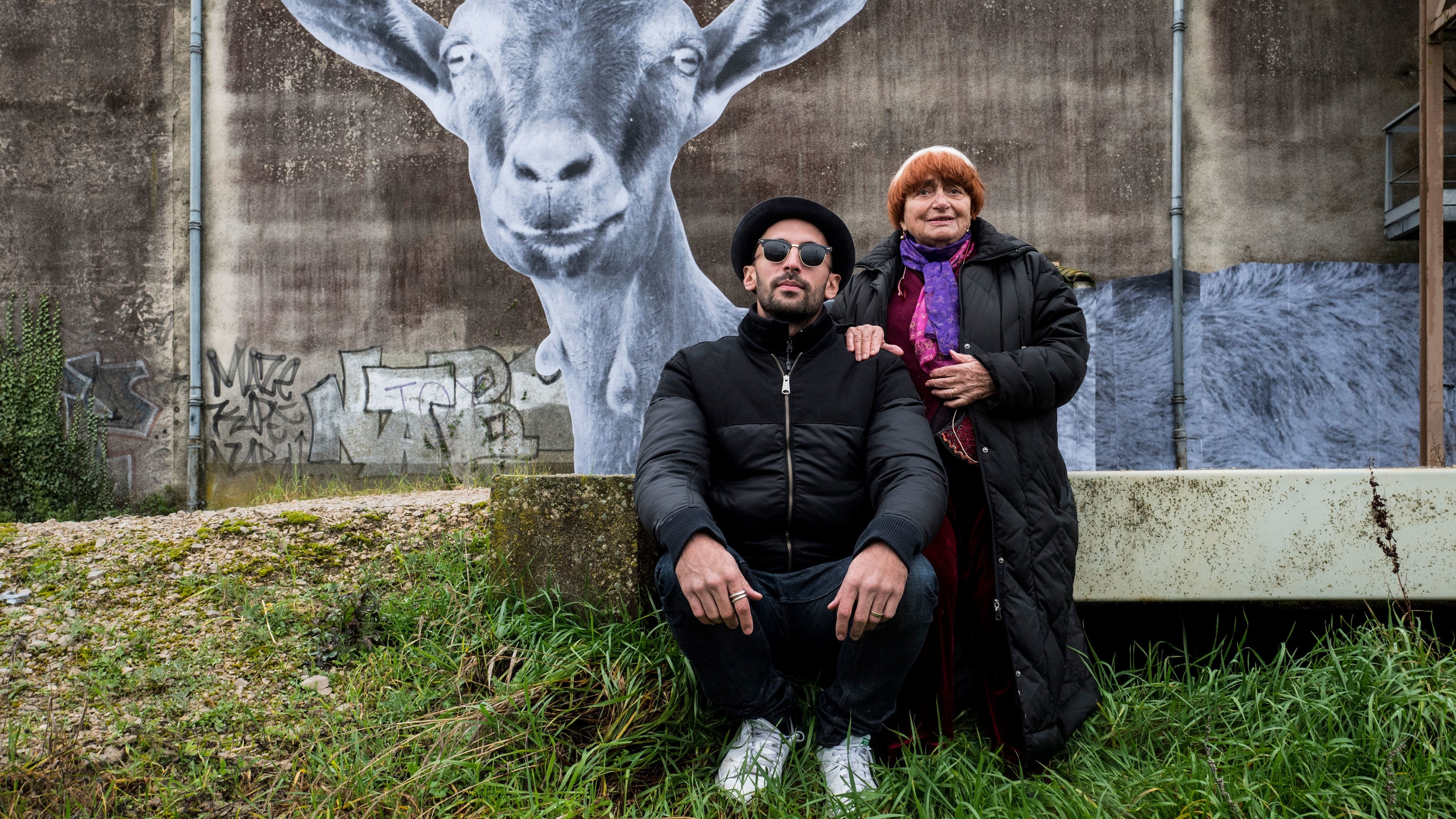
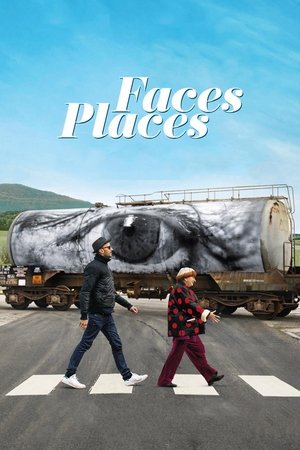
Faces Places
2017 • 1h 34min • ★ 7.674/10 • France
Directed by: Agnès Varda
Cast: Agnès Varda, JR, Patricia Mercier, Amaury Bossy, Claude Flaert
Director Agnès Varda and photographer/muralist JR journey through rural France and form an unlikely friendship.
Faces Places” is a French documentary film directed by Agnès Varda and JR, released in 2017. The film follows the two directors as they travel through rural France in a truck that has been turned into a mobile photo booth, taking portraits of people they meet along the way.
As they journey through the countryside, Varda and JR develop an unlikely friendship and collaborate on a series of public art installations that incorporate the portraits they’ve taken.
The film is a celebration of the beauty and diversity of ordinary people, and a tribute to the power of art to bring people together.
“Faces Places” is notable for its charming and whimsical style, as Varda and JR’s playful and sometimes surreal installations bring a touch of magic to the everyday world.
The film is also deeply rooted in the French landscape and culture, as Varda and JR visit small towns and villages that are often overlooked by the mainstream medi8. Uncle Yanco (1967)
No products found.
9. Far from Vietnam (1967)
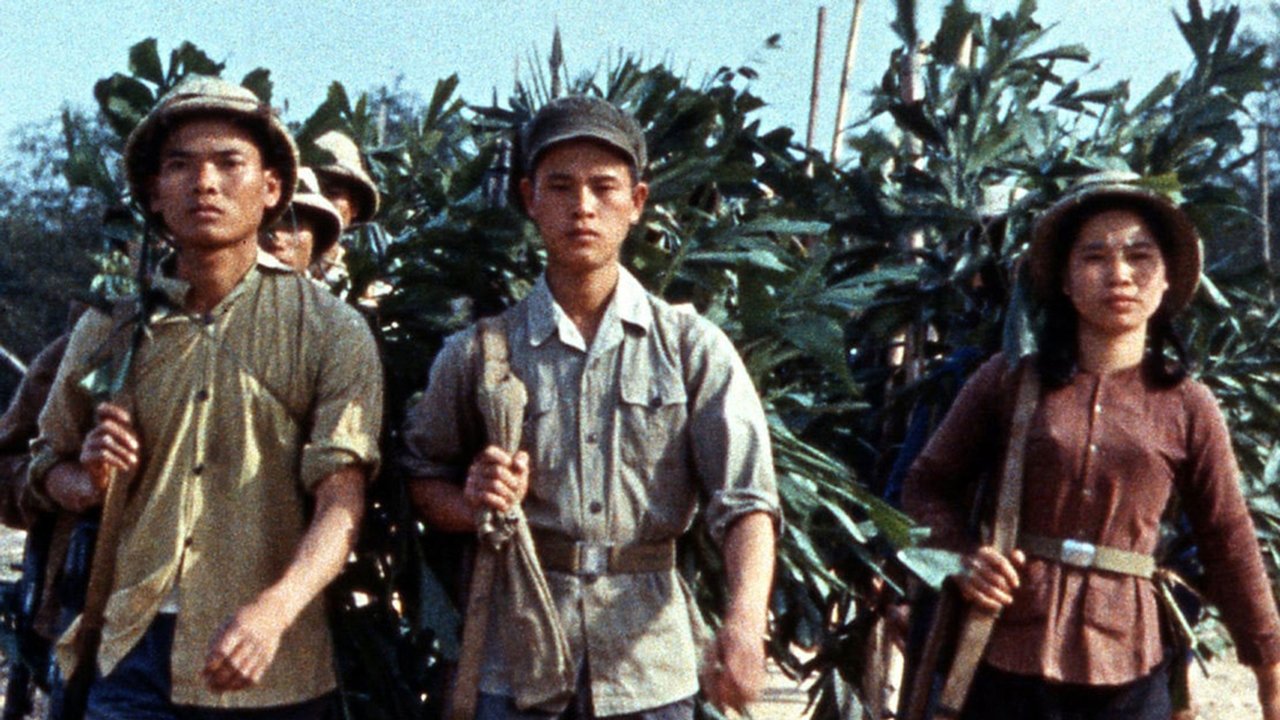
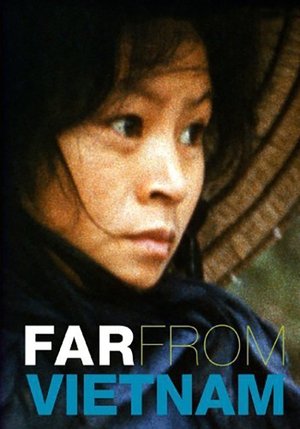
Far from Vietnam
1967 • 1h 56min • ★ 7.023/10 • Belgium
Directed by: Jean-Luc Godard
Cast: Maurice Garrel, Anne Bellec, Karen Blanguernon, Bernard Fresson, Marie-France Mignal
In seven different parts, Godard, Ivens, Klein, Lelouch, Marker, Resnais, and Varda show their sympathy for the North-Vietnamese army during the Vietnam War.
“Far from Vietnam” is a collaborative French film released in 1967, directed by a group of filmmakers including Jean-Luc Godard, Chris Marker, and Agnès Varda.
The film is a response to the escalating conflict in Vietnam and the filmmakers’ opposition to the war.
The film is structured as a collection of short films, each directed by a different filmmaker and exploring different aspects of the conflict.
The film combines documentary footage with fictional elements, including poetry, music, and animation.
It features interviews with both American and Vietnamese citizens, as well as footage of protests and demonstrations against the war.
“Far from Vietnam” is notable for its political and artistic significance, as well as its collaborative approach to filmmaking.
The film was made by some of the most innovative and influential filmmakers of the French New Wave, and it reflects the movement’s commitment to political engagement and experimentation with film form.
The film was controversial upon its release, as it was seen as a direct challenge to American involvement in the war and a call to action for the French public.
It remains a powerful and thought-provoking work of political cinema, a testament to the power of art to effect social change and a reminder of the ongoing struggle for peace and justice in the world.
No products found.
”}” data-sheets-userformat=”{“2″:513,”3”:{“1″:0},”12″:0}”>”]
10. Lions Love (… and Lies) (1969)
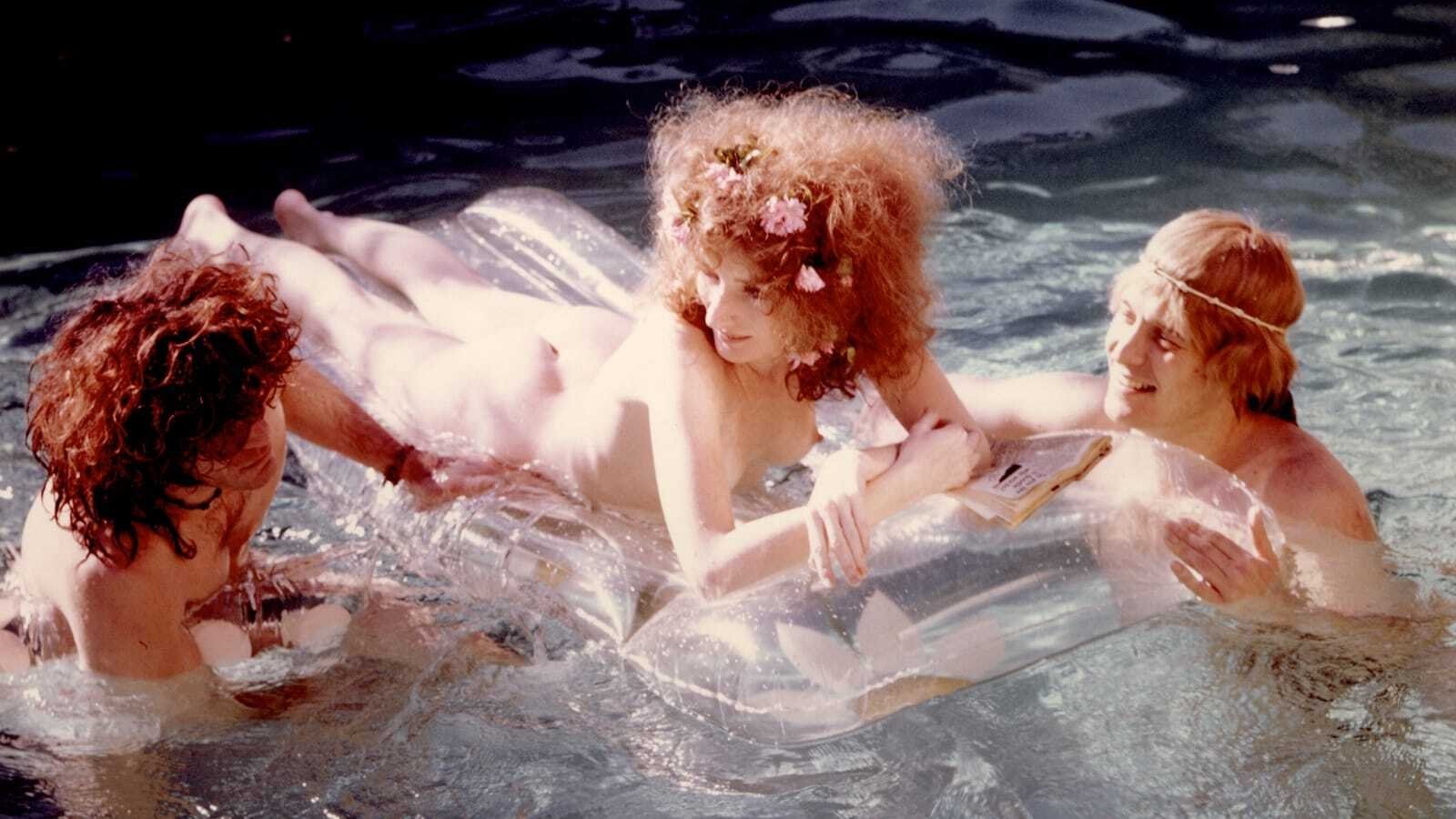

Lions Love
The Creators of "Hair" and "Viva" in a Film by Agnes Varda.
1969 • 1h 50min • ★ 5.875/10 • United States of America
Directed by: Agnès Varda
Cast: Viva, James Rado, Gerome Ragni, Shirley Clarke, Carlos Clarens
Three actors in Hollywood live and love together. A director comes from New York to make a movie about actors and Hollywood.
“Lions Love (… and Lies)” is a 1969 experimental film directed by Agnès Varda. The film is a satirical look at the counterculture of the late 1960s, focusing on a trio of actors living in Los Angeles.
The film blurs the line between reality and fiction, as it stars real-life figures Viva, James Rado, and Gerome Ragni, who had all been associated with the theater production “Hair.”
The film follows the trio as they navigate the Hollywood scene, interacting with a variety of celebrities and discussing their hopes and dreams.
“Lions Love (… and Lies)” is notable for its unconventional approach to filmmaking, as it incorporates elements of documentary, fiction, and avant-garde cinema.
It features long, unbroken takes, improvisational acting, and a free-wheeling, anarchic sensibility that reflects the counterculture of the era.
The film is also a commentary on the politics and culture of the time, with Varda using the characters and their interactions to explore themes of celebrity, power, and identity.
It offers a provocative and often humorous look at the contradictions and absurdities of the American dream, as seen through the eyes of a group of unconventional and irreverent artists.
11. One Sings, the Other Doesn’t (1977)
One Sings, the Other Doesn’t” is a 1977 French film directed by Agnès Varda. The film follows the lives of two women, Suzanne and Pauline, who meet in the 1960s in Paris and develop a close friendship.
The film spans over a decade and explores the personal and political struggles faced by the two women during this time, as they come of age and face the challenges of love, work, and family.
Suzanne, a working-class single mother, undergoes an illegal abortion and becomes an activist for women’s reproductive rights.
Meanwhile, Pauline, a middle-class aspiring singer, travels to the Middle East and becomes involved in feminist politics.
The film is notable for its frank and compassionate portrayal of women’s experiences, and for its depiction of the political and social upheavals of the time.
It explores issues of gender, class, and sexuality, and highlights the importance of female friendship and solidarity in the face of societal pressures and inequality.
The film also features an innovative use of music, with several songs written and performed by composer and singer François Wertheimer.
These songs, which are woven throughout the film, serve as a poetic and lyrical commentary on the characters’ lives and experiences
- Amazon Prime Video (Video on Demand)
- Thérèse Liotard, Valérie Mairesse, Robert Dadiès (Actors)
- Agnès Varda (Director) - Agnès Varda (Writer)
- (Playback Language)
.
12. Documenteur (1981)
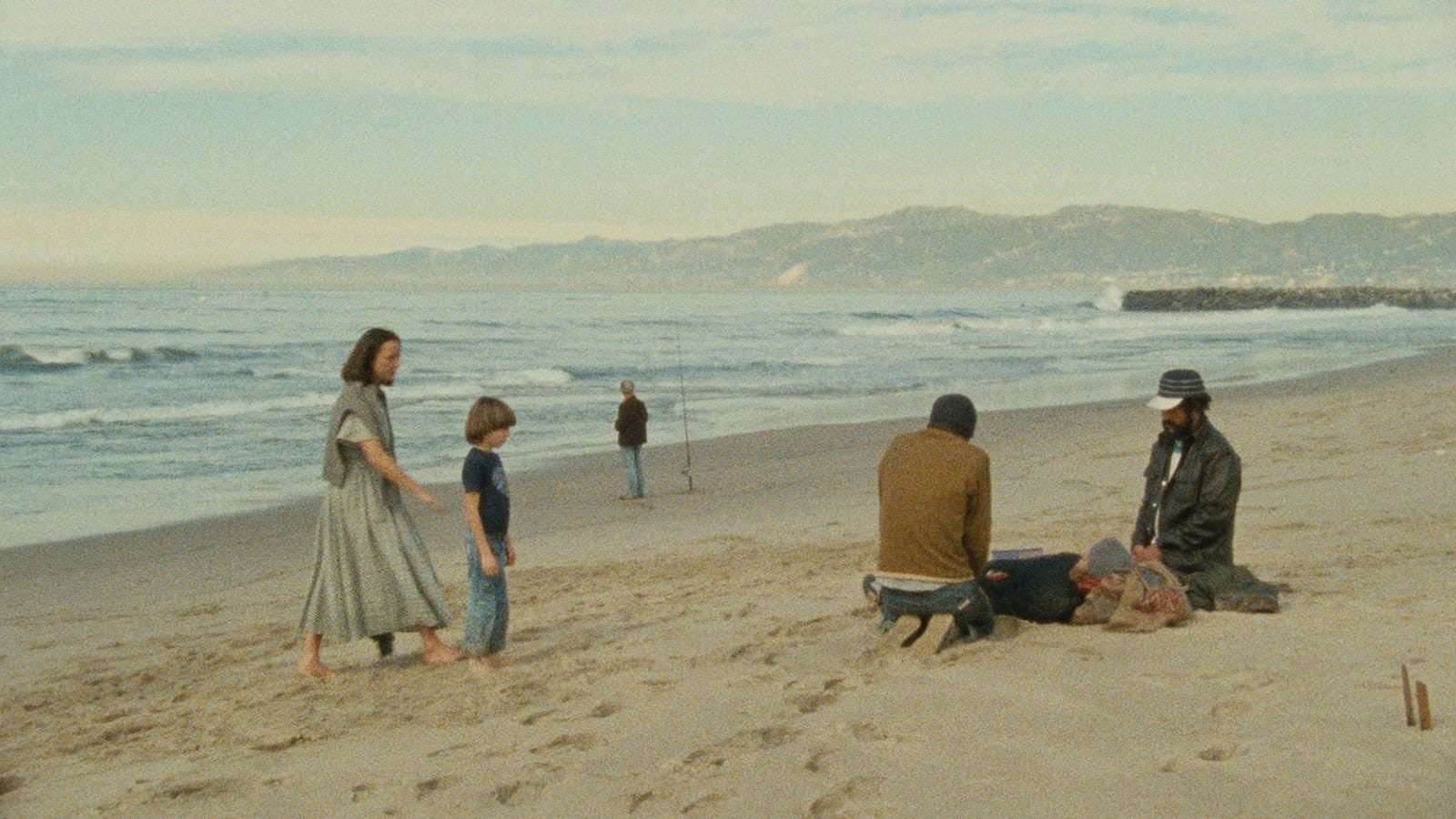
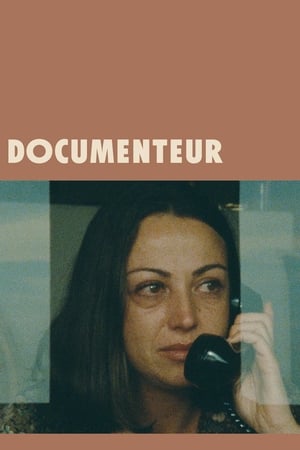
Documenteur
1981 • 1h 5min • ★ 6.8/10 • France
Directed by: Agnès Varda
Cast: Sabine Mamou, Mathieu Demy, Lisa Blok-Linson, Tina Odom, Gary Feldman
After separating from the father of her son, a young French woman tries to find lodging and a fresh start in L.A. for herself and her son.
“Documenteur” is a 1981 French film directed by Agnès Varda. The film follows a recently separated French woman named Emilie, who moves to Los Angeles with her young son and struggles to find her place in the city.
The film is a semi-autobiographical exploration of Varda’s own experiences living in Los Angeles, and it captures the sense of displacement and disorientation that Emilie experiences as she tries to adjust to her new surroundings.
The film is largely devoid of dialogue, with the visuals and sound design conveying Emilie’s inner thoughts and emotions.
“Documenteur” is notable for its spare and meditative style, which reflects Varda’s interest in exploring the relationship between image and sound.
The film features a number of striking visual sequences, such as shots of Emilie wandering through the desolate streets of LA, and dreamlike sequences that blur the line between reality and fantasy.
The film also explores themes of loneliness, connection, and the bonds between parent and child.
As Emilie struggles to connect with those around her, she begins to form a bond with her son, whose presence serves as a source of comfort and stability.
While “Documenteur” was not a commercial success upon its release, it has since gained a reputation as a sensitive and poetic work of art cinema.
No products found.
3 Characteristics of Agnes Varda Films
Agnes Varda was a pioneering filmmaker who played a significant role in shaping the French New Wave cinema of the 1960s.
Her films are known for their innovative and daring approach to storytelling, as well as their sensitive and humanistic portrayals of complex characters and social issues. Here are some of the key characteristics of Agnes Varda’s films:
A focus on everyday people and their struggles: Varda’s films often center on ordinary people, particularly women, and their experiences navigating the complexities of life.
Her films are marked by a deep compassion and empathy for her characters and a desire to shed light on the struggles and joys of everyday life.
A blend of documentary and fictional elements: Varda often blends elements of documentary and fiction in her films, creating a unique hybrid style that blurs the line between reality and fantasy.
She is known for her use of handheld cameras and naturalistic lighting, which give her films a sense of spontaneity and immediacy.
An interest in exploring social and political issues: Varda’s films often address social and political issues, particularly those related to gender, class, and identity.
She uses her films as a way to raise awareness about important issues and to challenge dominant narratives and power structures.
3 Reasons Why You Should Watch Agnes Varda Films
Agnes Varda was a pioneering filmmaker and artist, known for her unique approach to storytelling, her feminist perspective, and her ability to create visually stunning and emotionally resonant films. Here are some reasons why you should watch Agnes Varda films:
She was a key figure in the French New Wave movement: Agnes Varda was one of the few female filmmakers who was part of the French New Wave movement in the 1950s and 60s.
Her films were characterized by their experimental approach, mixing documentary and fiction techniques to create a new cinematic language.
She was a feminist filmmaker: Varda’s films often explored the experiences of women and the challenges they face in a male-dominated world.
She was one of the few female filmmakers of her time, and her films are characterized by a strong feminist perspective.
She was an innovator in the use of the camera: Varda was known for her use of innovative camera techniques, including handheld cameras and long takes.
Her films often experimented with the use of color, light, and shadow to create a distinctive visual style
Best Agnes Varda Films – Wrapping Up
Agnes Varda was a visionary filmmaker whose career spanned over six decades, during which she created a diverse body of work that is known for its innovative style and feminist perspective. Here are some of her best films:
Cleo from 5 to 7 (1962) – a masterpiece of the French New Wave, it follows a singer as she waits for the results of a medical test that may reveal a fatal diagnosis. It is a meditation on mortality, creativity, and female selfhood.
Vagabond (1985) – a gritty and poetic character study of a young drifter named Mona, whose body is discovered in a ditch in the opening scene. The film is a reflection on the precariousness of life on the margins of society.
The Gleaners and I (2000) – a personal and playful documentary that explores the tradition of gleaning, the practice of gathering leftover crops or other materials. The film reflects on the beauty of life’s leftovers and celebrates the joy of scavenging.
Faces Places (2017) – Varda’s final film, a documentary that she co-directed with the photographer JR.
The film follows the two artists as they travel through rural France, creating large-scale portraits of the people they meet and engaging in playful and profound conversations.



![Vagabond (The Criterion Collection) [DVD]](https://m.media-amazon.com/images/I/51AFWA1JMHL.jpg)


![Four by Agnes Varda (La Pointe Courte / Cleo from 5 to 7 / Le bonheur / Vagabond) (The Criterion Collection) [DVD]](https://m.media-amazon.com/images/I/41sHLrBEHRL.jpg)

![Le Bonheur [DVD]](https://m.media-amazon.com/images/I/516teGgsz4L.jpg)
![The Beaches of Agnès [DVD] [2008]](https://m.media-amazon.com/images/I/51WRvvb9RML.jpg)



